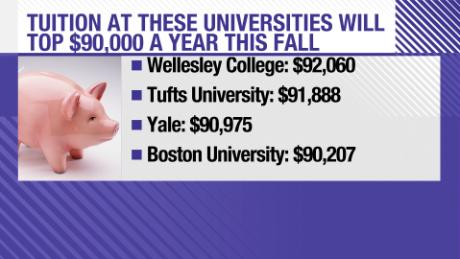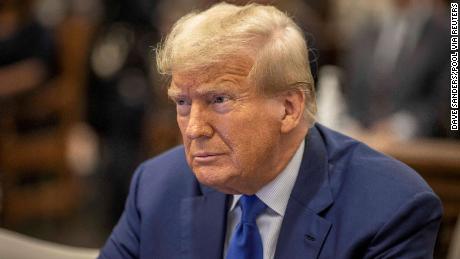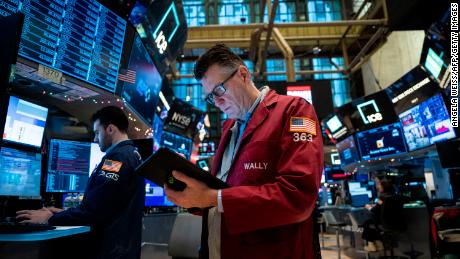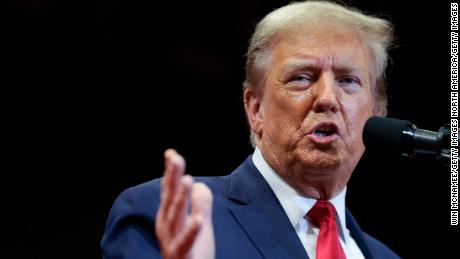London (CNN Business)1. Bigger than trade: Investor anxiety about trade has quickly morphed into something much bigger: renewed worries about global economic growth.
Treasury yields are down, oil is under pressure and global economic data has disappointed. Stocks could face a rocky ride if that fear really sets in.
"When you actually look at some of the major economies outside the United States, many of them have homegrown problems," said Ed Yardeni, president of investment advisory firm Yardeni Research. "It's not all about trade."
Escalating tensions between the United States and China clearly pose a problem. Businesses are saying that new rounds of tit-for-tat tariffs will hit their bottom lines, while economists warn of global ripple effects. The situation is made worse by the fact that there's no end to the fight in sight.
"We don't see the US or China hurrying to reach a deal, and the risk of miscalculation is growing," Mark Haefele, chief investment officer at UBS Wealth Management, said in a recent note.
Goldman Sachs analysts said last week that if the United States moves forward with threatened tariffs on all remaining imports from China, it would push the US stock market down an additional 4%. Markets have already been rattled by trade fears: The Dow just declined for the fifth straight week ŌĆö its longest weekly losing streak in nearly eight years.
But it's not just about whether markets wake up to the fact that they'd priced in a trade deal that was far from certain. Apprehension over trade is now magnifying other signs of weakness, resurfacing concerns about slowing global growth that dominated markets in December.
Recent economic data has revealed key soft spots. Manufacturing in Europe and China appears weak. Germany's economy appears to have slowed this quarter "to little more than a crawl," according to research firm Capital Economics, which pointed to manufacturing and business climate figures.
The chances of Britain crashing out of the European Union without a deal have also increased.
Meanwhile, the yield on the benchmark 10-year US Treasury fell to its lowest level last Thursday since late 2017. Bond yields tend to fall when investors are worried about sluggish growth.
Then there's US oil, which fell nearly 7% last week to $58.63 a barrel. It was the worst week in five months.
Though prices have since stabilized, a surge of crude inventories disclosed by the US government last week has raised the possibility of another supply glut ŌĆö not unlike the one that sent crude crashing into a bear market late last year.
All this comes as trade starts to weigh on top brands.
"Trade tensions create uncertainty," Yardeni said. "Uncertainty causes companies to cut back on capital spending [and] on expansion."
Earnings expectations are already taking a hit. Kohl's, for example, last week lowered its guidance for the year in part due to higher costs from tariffs. The retailer imports about 20% of its merchandise from China.
Roughly 77% of S&P 500 companies that have issued second quarter earnings guidance expect to come in below analysts' expectations, above the five-year average of 70%, according to FactSet.
Should this data hold and pessimism sink in, investors could be in for even more trouble.
"Global equity markets are facing the perfect storm of headwinds in the form of persistent US-China trade drama, concerns over plateauing global growth and tumbling commodity prices," Lukman Otunuga, an analyst at currency trader FXTM, wrote in a note Friday.
He continued: "For as long as these themes remain in play, investor appetite for stocks is poised to evaporate ŌĆö ultimately bringing equity bears back into the game."
2. Economic data: New economic data out this week will be examined closely for signs on a global economic slowdown.
Some key reports are due in Europe, including German consumer confidence and Eurozone business confidence on Tuesday, along with UK consumer confidence on Friday.
In the United States, investors will watch for the second estimate of first quarter GDP growth. Initial estimates may have been wonky due to the government showdown.
3. Retail earnings: The US-China trade war will stay at the forefront of retail earnings as they roll into another week.
Major retailers have developed strategies to blunt the impact of tariffs so far. But they're starting to warn that the trade war is impacting business.
Walmart (WMT), Target (TGT), Home Depot (HD), Kohl's (KSS) and Macy's (M) have all said that the tariffs have forced them to either alter their financial outlooks, remodel carefully crafted supply chains or consider raising price tags for customers.
Investors will be on high alert for more problems as they gauge the health of the dollar store sector, as well as clothing retailers such as Gap (GPS). In February, Gap announced it plans to spin off Old Navy into a separate company next year.
Costco (COST) reports earnings on Thursday. Despite trade strain, Walmart (WMT) and Target (TGT) both posted strong starts to the year, and analysts expect Costco to continue big box retailers' hot streak.
4. Coming next week:
Monday ŌĆö US and UK markets closed
Tuesday ŌĆö S&P/Case-Shiller home price index; US and German consumer confidence; Eurozone business confidence
Wednesday ŌĆö Abercrombie & Fitch (ANF) and Dick's Sporting Goods (DKS) earnings; ExxonMobil (XOM) shareholder meeting
Thursday ŌĆö Second estimate of US Q1 GDP; Dollar General (DG), DSW parent company Designer Brands, Gap and Costco earnings
Friday ŌĆö UK consumer confidence; US personal spending
Tuesday ŌĆö S&P/Case-Shiller home price index; US and German consumer confidence; Eurozone business confidence
Wednesday ŌĆö Abercrombie & Fitch (ANF) and Dick's Sporting Goods (DKS) earnings; ExxonMobil (XOM) shareholder meeting
Thursday ŌĆö Second estimate of US Q1 GDP; Dollar General (DG), DSW parent company Designer Brands, Gap and Costco earnings
Friday ŌĆö UK consumer confidence; US personal spending




















